A list of films produced in Argentina in 1973:
This page covers significant events of the year 1973 in film. Warner Bros. and Walt Disney Studios celebrated their 50th anniversaries.
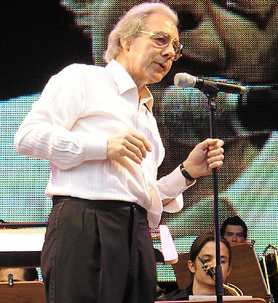
Boris Claudio "Lalo" Schifrin is an Argentine-American pianist, composer, arranger, and conductor. He is best known for his large body of film and TV scores since the 1950s, incorporating jazz and Latin American musical elements alongside traditional orchestrations. He is a five-time Grammy Award winner; he has been nominated for six Academy Awards and four Emmy Awards.
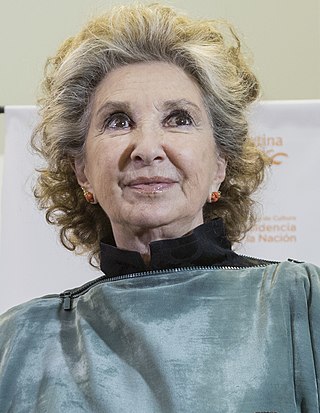
Norma Aleandro is an Argentine actress. She is considered one of the most celebrated and prolific Argentine actresses of all time and is recognized as a cultural icon in her home country.
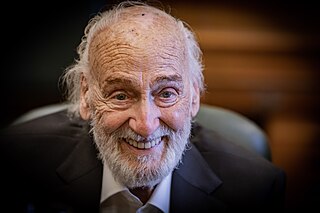
Héctor Benjamín Alterio Onorato is an Argentine theatre, film and television actor, well known both in Argentina and Spain.
This is an index to pages listing Argentine films ordered by year of release. For an A-Z list, see Category:Argentine films.

Fernando Ayala was an Argentine film director, screenwriter and film producer of the classic era. He is widely considered one of the most important Argentine film directors and producers in the history of the cinema of Argentina.

Héctor Olivera is an Argentine film director, producer and screenwriter. Olivera worked mainly in the cinema of Argentina, but also has directed or contributed to several films made for the United States market.
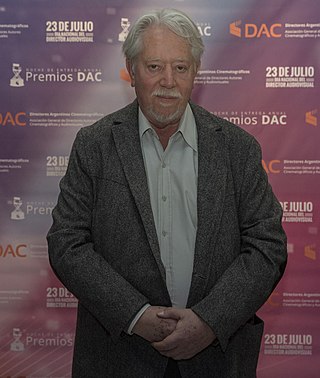
Luis Adalberto Puenzo is an Argentine film director, producer and screenplay writer. He works mainly in the cinema of Argentina, but has also worked in the United States.

Pierre Bruno Hugo Fontana, otherwise known as Hugo del Carril, was an Argentine film actor, film director and tango singer of the Golden Age of Argentine cinema.

Enrique Carreras was a Peruvian-born Argentine film director, screenwriter and film producer. He was one of the most prolific film directors in the history of the cinema of Argentina and a prominent figure of the classical era of Argentine cinema.
Julio Hirsch, known professionally as Julio Chávez, is an Argentine film, theater and television actor.

Carlos Rinaldi was an Argentine film director of the classical era of Argentine cinema and beyond. He began his career in 1937 with Argentina Sono Film, working in editing. Subsequently, he joined Associated Argentine Artists, where he was responsible for the editing of the company's entire production, earning recognition as the leading editor of his time. Rinaldi made his directorial debut with La cuna vacía in 1949 and directed numerous films until 1980.
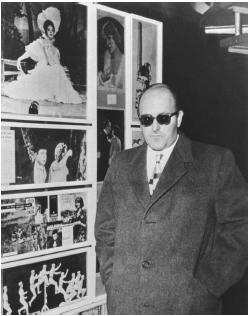
Leopoldo Torre Nilsson, also known as Leo Towers and as Babsy, was an Argentine film director, producer and screenwriter.
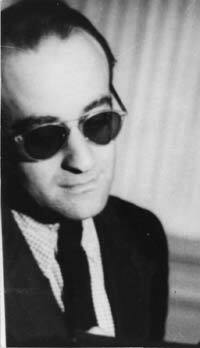
Luis Saslavsky was an Argentine film director, screenwriter and film producer, notable for his work during the classical era of Argentine cinema.
The Grupo Cine Liberación was an Argentine film movement that took place during the end of the 1960s. It was founded by Fernando Solanas, Octavio Getino and Gerardo Vallejo. The idea of the group was to give rise to historical, testimonial and film-act cinema, to contribute to the debate and offer an open space for dialogue and freedom of expression that was illegal at that time. With strong anti-imperialist ideas, he harshly criticized Peronism and neocolonialism. In the subsequent years other films directors revolved around the active core of the Cine Liberación group.

Argentina, officially the Argentine Republic, is a country in the southern half of South America. Argentina covers an area of 2,780,400 km2 (1,073,500 sq mi), making it the second-largest country in South America after Brazil, the fourth-largest country in the Americas, and the eighth-largest country in the world. It shares the bulk of the Southern Cone with Chile to the west, and is also bordered by Bolivia and Paraguay to the north, Brazil to the northeast, Uruguay and the South Atlantic Ocean to the east, and the Drake Passage to the south. Argentina is a federal state subdivided into twenty-three provinces, and one autonomous city, which is the federal capital and largest city of the nation, Buenos Aires. The provinces and the capital have their own constitutions, but exist under a federal system. Argentina claims sovereignty over the Falkland Islands, South Georgia and the South Sandwich Islands, the Southern Patagonian Ice Field, and a part of Antarctica.

The 1973 Intercontinental Cup was an association football match played on 28 November 1973, between Juventus, runners-up of the 1972–73 European Cup, and Independiente, winners of the 1973 Copa Libertadores. The match was played at the Stadio Olimpico in Rome. It was Juventus' first appearance in the competition and Independiente's fourth appearance after the defeats against Internazionale in 1964 and 1965 and against Ajax in 1972. Despite initially refusing to participate in the competition, Juventus replaced Ajax as the representative UEFA team in the competition after Ajax, as the European champions declined to contest a possible meeting in South America officially for financial reasons. The Cup was played in a single match instead of a two-legged final, as happened in the previous and following years until 1979.
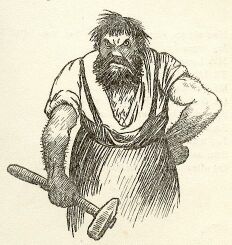
Ferreyra is a surname meaning 'smith'. Notable people with the surname include:

María Elena Lucena Arcuri was an Argentine film actress of the Golden Age of Argentine cinema. She began her career in radio in the 1930s and reached her greatest success with the role of "Chimbela", which was later depicted in film, theater and television. Her extensive film career includes approximately 50 films, including notable performances in Chimbela (1939) and Una noche cualquiera (1951). During the 1940s, she participated in films with comedians like Pepe Arias, Pepe Iglesias "El Zorro", Niní Gambier, Mirtha Legrand and Carlos Estrada. Her most acclaimed film work occurred in Elvira Fernández, vendedora de tienda (1942) by Manuel Romero, Cinco besos by Luis Saslavsky and La Rubia Mireya for which she received the 1948 Best Comedy Actress Award from the Argentine Film Critics Association.